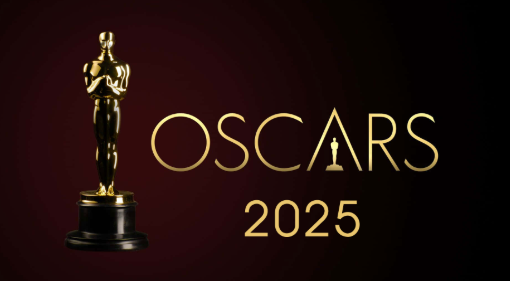
Controversy has struck the 97th annual Oscar Awards that will be hosted by The Academy of Motion Picture Arts and Sciences this Sunday; two movies have been nominated for several awards, including best picture and best director, despite their use of AI enhancement.
“Emilia Perez,” already embroiled in scandal because of tweets published by actress Karla Sofia Gascon and for what many felt was an inappropriate depiction of Mexican culture and transgender individuals, used AI voice cloning tools to enhance the voices of actresses in the musical to help them reach notes outside of their vocal range.
David Jansco, an editor for “The Brutalist,” confirmed that AI was used to not only enhance the Hungarian accents of Adrien Brody and Felicity Jones in the film but also to create drawings and buildings in the “Venice Biennale” scene of the movie.
“I think it’s pretty bad because we have done very little in this country to regulate it as a resource,” said Alyxandra Vesey, an assistant professor of journalism and creative media. “I also think that there’s a tremendous risk that AI poses towards depleting our labor force.”
In the summer of 2023, the Screen Actors Guild and the American Federation of Television and Radio Artists alongside the Writers Guild of America went on strike. One of the major concerns was the lack of regulation of AI that could potentially be used to replace human labor with the likes of ChatGPT to write scripts and screenplays or replicate the voices and images of actors.
Despite the distaste among some movie-goers for AI, the industry seems to continue pushing for its integration. Other than the 13 Oscar nominations for “Emilia Perez,” the film has already won 18 best picture awards and received much praise from film critics. “The Brutalist,” with 10 nominations, has won 13 best picture/film awards.
Teddy Champion, a visiting instructor in journalism and creative media, said that while he did not approve of AI in filmmaking, he does not necessarily find it disqualifying.
“I don’t think they want to advocate for it, but [the Academy is] wise to get ahead of it. It does seem like it’s one of those things that’s going to become pervasive,” Champion said. “As long as you’re honest with the audience, I think the audience will buy into it.”
The controversy is not due to a lack of transparency, however. As Vesey described it, “they’re all performance-based controversies,” referring to the need to make Brody and Jones’s accents sound more authentic and improve the range of performers in a musical movie.
Regardless of enhancements, for some, neither film has made a real impression. Lukas Hislop, a senior majoring in finance and economics and a member of the Will Nolan Film Club, said neither the singing nor the writing for “Emilia Perez” was very good in his opinion.
“I haven’t read that much about people complimenting the movie or haven’t even found people that are like ‘this is our movie.’ Even the people it’s appealing to — there’s no real connection,” Hislop said.
Another member of the Will Nolan Film Club, Katie Farquhar, a history and anthropology major, expressed a slight disappointment in “Challengers” receiving no nominations, despite being well-received by audiences. She also hopes that “A Real Pain” wins in the two categories it shares with “The Brutalist.”
“There’s something to be said for the most powerful people in the industry wanting to see a certain thing and rewarding it,” Farquhar said. “The general public still has a lot of power, because they’re the ones who go see the movies and ultimately make them the most money.”








